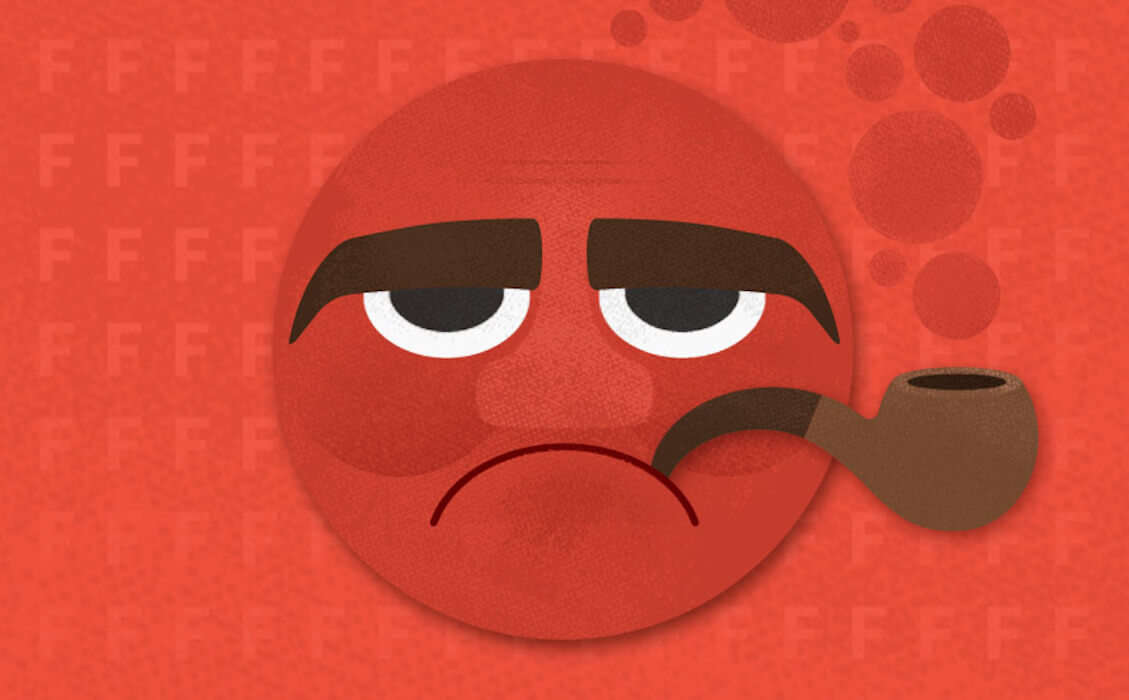Ok, listen up. I have a message for the students of Canada and I hear this is the place to get it read.
Editor’s Note: This is one of our favourite articles from years past. And considering how frustrated everyone has been with the school year, it seems like the perfect time for a sneak peek at what your grumpy teacher really thinks of you.
I’m smack dab in the middle of what must be the most frustrating teaching experience in history. Teaching general elective courses to students that clearly don’t want to take them but are required to in order to complete their degrees. How was the course “elective” and “required”? Shut up. That’s not the point.
The point is this: getting good grades is not as hard as you think. Especially intro level courses or general electives.
Here are four quick tips you need to burn into your brain, from an honest teacher to you.
Tip One: Read the Fracking Rubric
Education has changed a lot in the last thirty years. And for better or worse, rubrics have come to dominate grading. It used to be: I’d read an essay, carefully assess the quality, provide thoughtful feedback, and assign a grade.
Now I’m expected to compare your work to a bunch of little boxes that all have vaguely similar-sounding phrases, check off the boxes that objectively assess your work, and add up the scores of each box.
Some rubrics are brilliant, most are garbage. Either way, what this means for you is that you are being graded not on overall quality but on how well your assignment fits in the boxes.
Read the boxes. Read them again. Make sure every poorly thought out phrase in that “exceeds expectations” column appears somewhere in your assignment. Draw big bold attention every time you do something that checks a rubric box. I’m probably not reading your essay anyway, I’m just skimming for things I can check off on the rubric. Help me help you.
Tip Two: Ctrl+F the Obvious
Or whatever the stupid Mac equivalent for a document search is. Search your assignment for the words “Wikipedia” and “Dictionary.” Do they appear? If yes, STOP.
This is a sure tip off to any professor that you are an idiot. Or if you are not an idiot, you are at the very least phoning in this assignment. Of course, you’re going to use Wikipedia. Of course, you’re going to use the dictionary (or more likely some online dictionary). But if you have an ounce of dignity, don’t reference them.
At least follow that Wikipedia paragraph to the reference section and pretend you’re referencing the actual source material.
Tip Three: Find a Stupid Friend. Better Yet, Find a Few.
Marking your assignments is tedious, mind-numbing and frustrating. Most of what you are writing, good and bad, I have read a hundred times. Nine times out of ten I can scan your assignment and predict the exact grade you would get had I read every word.
Don’t judge. You try reading a hundred papers on Creating and Maintaining Symbol in Alice Munro’s “Runaway.”
But here’s the thing, once you read a few awful papers in a row, one mildly average piece of work is like a ray of sunshine. A ray of sunshine coming in through the bottom of the garage door as it slowly fills with carbon monoxide, but a ray of sunshine nonetheless.
After I’ve read a few bad papers, I’m so grateful for a good one that Cs become Bs, Bs become As and As get a free ride for the rest of the course.
Find some stupid friends. Hand in your assignment so that it lands in the pile below theirs. You’ll thank me.
Tip Four: What Did I Give You Last Time—The Dirty Little Secret
Remember when I said nine times out of ten I can grade your paper by skimming it?
Well, I’m not completely negligent. I make sure to do a sanity check against your previous grades. If I think this is C-work, and I look back at your last assignment and see you got an A, I’ll likely do a double-take.
But this works the other way, too. If I’m about to give you an A after a quick skim and look back to see you’ve gotten nothing but Cs, I’ll take another, harsher look.
What this means is you need to make an early impression. Put most of your work into your earliest assignments. Alternatively, if you’ve been performing poorly, and are stepping up your game, send me an email or show up at office hours to tell me about how you’re working harder and are hoping that hard work pays off on this assignment. That way if I’m about to give you an A and see all those Cs, I’ll remember the conversation and the incongruity will be resolved.
Bonus Tip: Professors are Human
It’s much harder to give bad grades to someone whose name you recognize or someone who has looked you in the eyes and told you how important their grades are to them. Make sure your professors know who you are.
But don’t be annoying about it. Ok?
READ MORE: I Interviewed My Profs About What Pisses Them Off, So You Don’t Have To
________________________________
Submitted anonymously to the SLN contact address. Thank you, grumpy prof, from all of us! If you have a similar article, contact us at editor@studentlifenetwork.com.

Access more content for students
*Opinions expressed are those of the author, and not necessarily those of Student Life Network or their partners.




